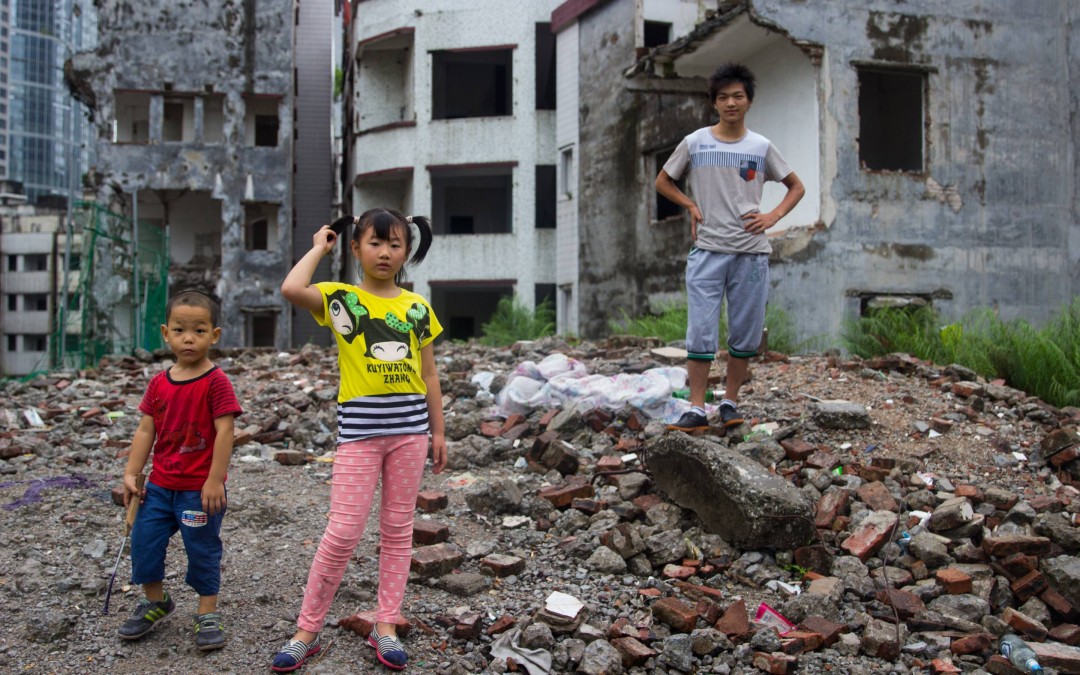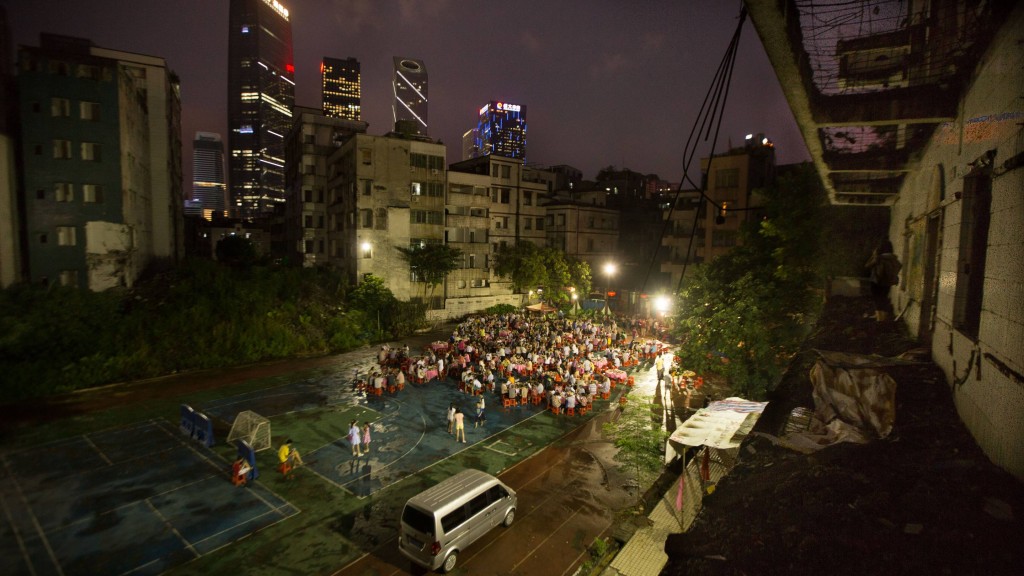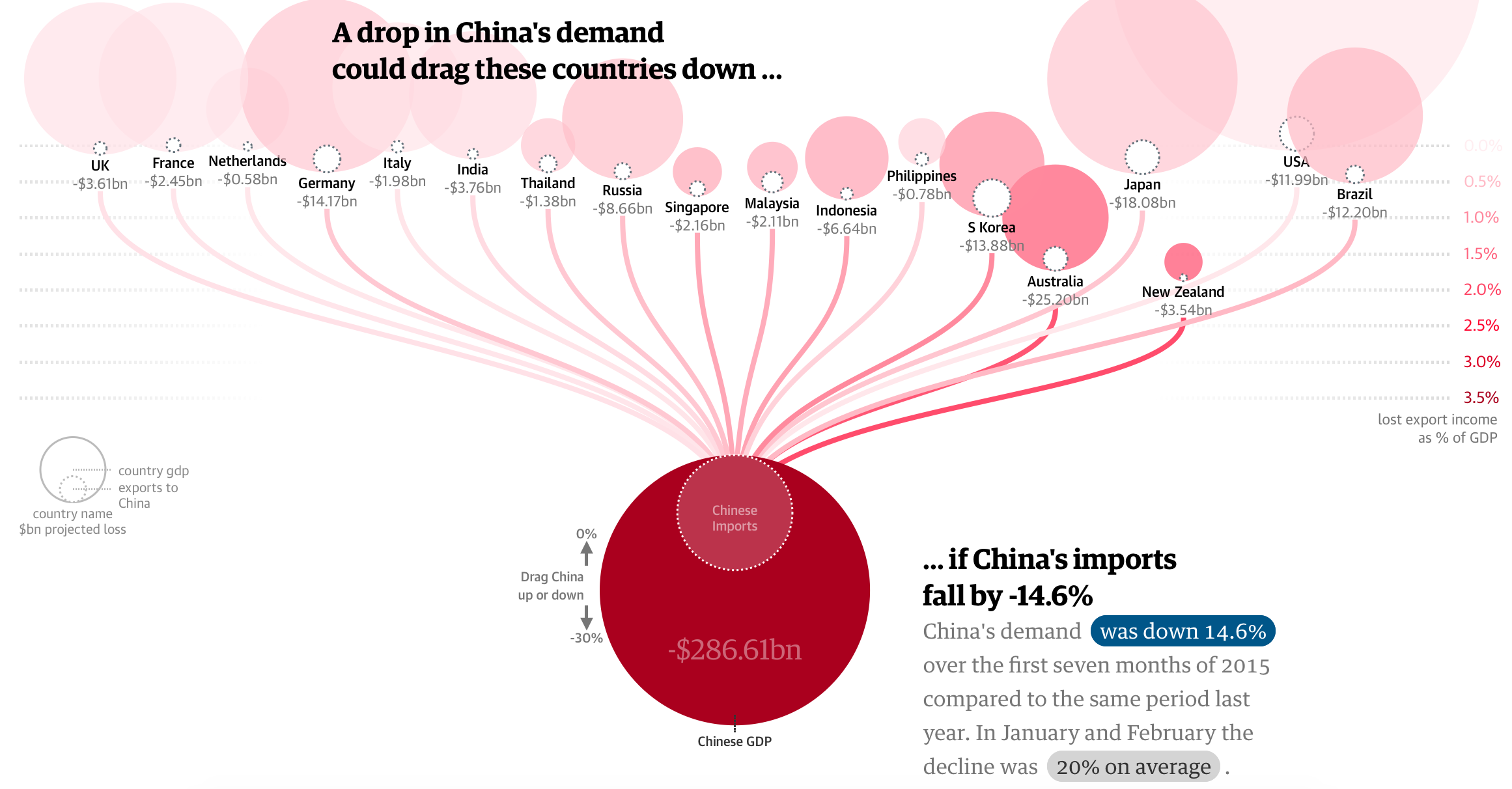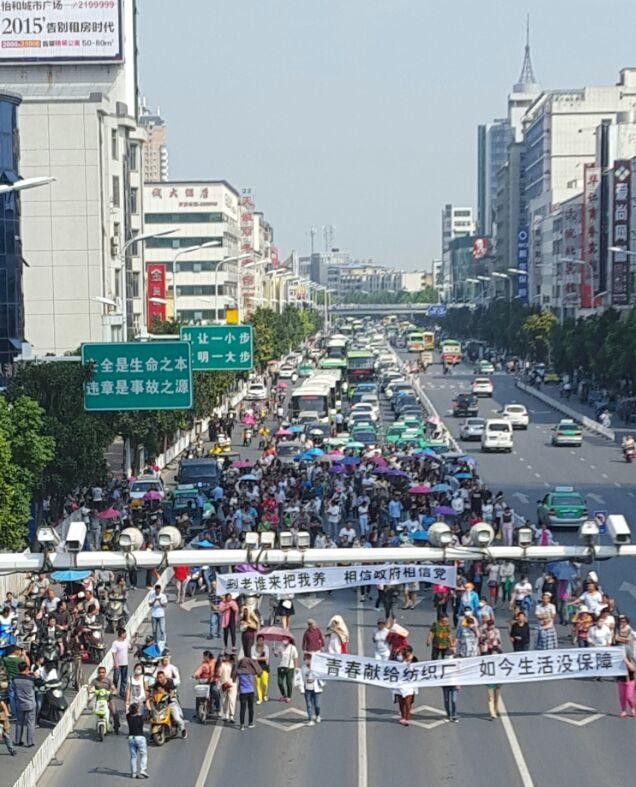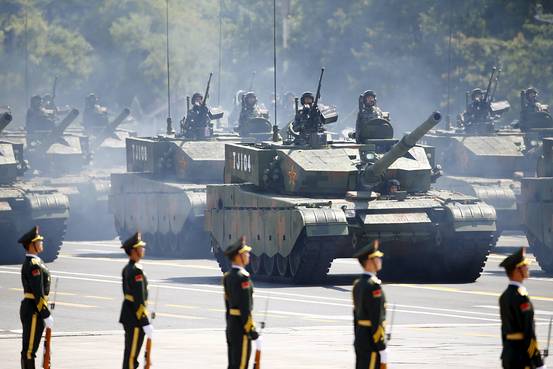Photo by Eric Jenkins-Sahlin, from R&K.
Highlights
Zombie Factories Stalk the Sputtering Chinese Economy – NY Times, Aug 30
“To protect jobs and plants, the government and its state-owned banks sometimes keep money-losing businesses on life support by rolling over or restructuring loans, providing fresh credit or offering other aid. While this may seem like an odd business tactic, it is part of a broader strategy to help maintain social stability, a major goal of China’s leadership. Authorities in China’s provinces and cities also back struggling factories just because they are deemed important to the local economy.”
China’s Export Data Points to a Deepening Industrial Downturn – Neil Gough, NY Times, Sep 9
“China’s industrial slowdown is showing signs of worsening, as the country’s trade slump deepened further in August in the face of weaker demand from overseas buyers.”
How farmers from rural China bet on the stock market and lost – WP, Aug 29
“The farmer-investors of Nanliu know about volatility — their livelihoods have depended on the whims of weather and the price-setting powers of people far, far away. That did little to ease the pain as people watched helplessly as the equivalent of a year’s work on the land vanished in the span of a day.”
China’s Hunt for Growth in the Countryside – Bloomberg, Aug 28
“Alibaba, the e-commerce giant, is turning to the immense interior in search of fresh profits.”
Strikes in Manufacturing: from offensive to defensive? – Kevin Lin, Made in China Newsletter, July-August 2015
“In the past year, China’s slowing economy and the weakening of the Chinese export sector have brought around an upsurge of strikes related to factory relocations. Now that the Chinese workers are struggling to get severance payments and compensation for previously unpaid social insurance and housing contributions, will the militancy of the new Chinese labour movement be affected?”
Marketizing China – Eli Friedman, Jacobin, Sep 9
“The squeezing of Chinese workers will also lead to more conflict. Indeed, most signs point to a recent uptick in class struggle as the still-embryonic working class resists its imminent unmaking. Yet whereas workers were on the offensive just a couple of years ago, strikes are increasingly about unpaid wages, factory relocations, and bankruptcies.”
The Siege of Xian – R.W. McMorrow, Roads & Kingdoms
‘The residents of China’s Xian village congregate most afternoons in a sitting room at 30 Fanyang Main Street, a brick alley just wide enough to allow three-wheeled carts to pass abreast. The alley is flanked by the rubble of demolished and hollowed-out homes. “No. 30 is our anti-corruption base,” says Lu Yongquan, one of the organizers of the village’s defense. He is a boyish-looking 47-year-old, with gray flecks peppering his black hair, which he blames on the years of pressure. “In all of China, there is perhaps no village that has resisted for this long.”’
Why Xi Jinping’s Campaign to Suppress Western Ideas Is Bound to Fail – Peter Zarrow, History News Network, Sep 13
“This is why current efforts to suppress so-called Western ideas will fail, despite the government’s best efforts. China has a massive censorship apparatus and there is certainly plenty of self-censorship, but people continue to push against the boundaries. Alarmingly, since Xi Jinping became president in 2013, activists—such as the “feminist five” last March—journalists and rights lawyers (hundreds over the summer) have been arrested, detained, or simply disappeared. And these are just the known cases. The cases of ordinary workers who wish to organize, peasants who protest land seizures, and ethnic minorities who run afoul of local or national officials number many more. New cyber-security and national security laws are vaguely worded and subject any criticism of the Communist Party to potential legal reprisal.”
Hong Kong: One year after 8.19, by Alex Chow and Yang Jianli – China Change, Aug 31
‘Thanks to the momentum generated by the Movement, on June 18th of this year, a pan-democratic coalition successfully blocked the pseudo-democratic package offered by Beijing’s puppets in the Hong Kong Legislative Council by a landslide vote of 28:8. This dramatic incident was portrayed by some as the beginning of foreseeable political deadlock for Hong Kong, and the end of democratization, leaving nobody as a winner. On the contrary, we deem it a great victory of the people of Hong Kong. Certainly, things would not have been better if the package had been passed. It would have made no real progress towards Hong Kong citizens’ electing their own leaders, and would only have encouraged Beijing to further encroach on their freedoms. It also would have strengthened dominance of vested interests in Hong Kong, namely the tycoons, and further accelerate the invasion of “Red” capital from mainland China.’
Stock Market Crash, Economic Development/Crisis
China grabs unused funds to spend on new projects as growth slows -Reuters, Sept 14
“Chinese authorities have seized up to 1 trillion yuan ($157 billion) from local governments who failed to use their budget allocations, sources said, as Beijing looks for ways to spend its way out of an economic slowdown.”
China unveils details of state-firm reforms as growth sputters – Reuters, Sep 13
“China unveiled details on Sunday of how it would restructure its state-owned enterprises (SOEs), including partial privatization, as data pointed to a cooling in the world’s second-largest economy.
The guidelines, jointly issued by the Communist Party’s Central Committee and the State Council, China’s cabinet, included plans to clean up and integrate some state firms, the official Xinhua news agency said.”
Operation to steady China stocks a success, but patient comatose – Reuters, Sep 8
“China has busily rewritten the rules in recent weeks, and there has been no let up in policy changes and intervention aimed at shoring up markets and staving off full-blown panic.
How China’s economic slowdown could weigh on the rest of the world – Guardian, Aug 26
“In the year to July, China’s customs agency reports that imports from Australia are down by $15bn dollars on the same period last year – a loss which is already equal to 1% of Australia’s GDP, and many other countries stand to lose out to similar degrees. China’s imports overall are down by 14.6% over 2015. Find out what happens if this decline continues for the rest of the year – or worsens – and how that loss compares to each country’s GDP.”
Why I don’t believe Chinese GDP Data – Christoper Balding, Sep 4
“China has undoubtedly grown significantly over the long run and this is unquestionably good for China and the world. However, that is not the question. The question is how reliable Chinese GDP figures are. I believe as a baseline case from my own research alone, real Chinese GDP would need to revised downward by a minimum of 10 percent or approximately US $1 trillion.”
Slowdown at Chinese Factories Accelerates – NY Times/Reuters, Sep 1
“Activity at China’s factories shrank at the fastest rate in at least three years in August, as domestic and export orders tumbled, increasing investors’ fears that the economy may be lurching toward a hard landing.”
Everything you’ve heard about China’s stock market crash is wrong – Quartz, Aug 27
“This week’s Chinese stock market implosion has been widely viewed as a reaction to the Chinese government’s devaluing the yuan on Aug. 11—a move many presume was a frenzied bid to lower export prices and strengthen the economy.
This interpretation doesn’t stand up to scrutiny. First, Chinese investors haven’t been investing based on how the economy is doing, but rather, based on what they think the government will do to prop up the market. The crash, termed “Black Monday,” was more likely a reaction to the central bank’s failure over the weekend to announce a widely expected cut to the bank reserve requirement since previous cuts in February and April had boosted stock prices. The government eventually caved and announced a cut on Tuesday (Aug. 25).
Second, the crash happened nearly two weeks after the devaluation, and the government only let the yuan depreciate by about 3% before swooping in and propping up its value again—which hardly helps exporters since the currency’s value effectively rose some 14% in the last year.”
China’s Response to Stock Plunge Rattles Traders – NY Times, Sep. 9
“The police have been dropping in on investment firms and downloading their transaction records. Senior executives at China’s biggest investment bank have been arrested on suspicion of illegal trading. A business journalist has been detained and shown apologizing on national television for writing an article that could have hurt the market.
The Communist Party’s response to China’s monthslong stock market crisis has been swift and forceful. In addition to spending as much as $235 billion to buy shares and bolster prices, the authorities have imposed a range of extraordinary restrictions on the sale of stocks – and backed them with the full weight of a security apparatus usually more focused on political dissent than equity trades.”
Anatomy of a Collapse – Kevin Lin, Jacobin, July 30
“The Chinese state’s intervention after the stock market crash was immensely political — as was the collapse itself.”
China after the boom – Tom Bramble, Red Flag, July 29
“After three decades of spectacular growth, the Chinese economy is at a turning point. The plunge in the stock market that has wiped trillions of dollars from the value of China’s listed companies is just one part of the story. More significant is the fact that growth is now at its lowest level for 24 years and is forecast to fall further. Foreign trade is down by 6 percent and export markets are depressed. Industrial profits are falling and the manufacturing sector is in a funk. Capital is flooding out of the country and foreign exchange reserves are dropping. The Chinese economy is not at risk of imminent collapse, but the coming years will certainly represent a break from the past decades. The factors responsible for the current slowdown have their origins in the very things that underpinned China’s emergence as a world economic power.”
Assessing the Chinese Government’s Role in the Stock Markets – Edward Wong, Mia Li, Kiki Zhao, NY Times (Sinosphere), Sep 14
“Several Chinese analysts recently shared their views with The New York Times on the government’s attempts to manage the market.”
The root of China’s economic troubles? It’s politics, stupid – Pei Minxin, Nikkei Asian Review, Sep 7
“Judging by the reaction of financial markets to the recent spate of bad economic news from China, it is clear that the global business community had no inkling that the Chinese “economic miracle” would unravel so suddenly. But for those familiar with the political economy literature on predatory regimes, China’s stumble was not only expected but inevitable.”
Blaming China for Black Monday is like blaming a bartender for your hangover – Manuel Hinds, Quartz, Aug 24
“What is happening? Why is China—the country that people once thought was the engine of the world economy—tottering so badly? To answer these questions it is necessary to recognize that China was never the engine of the world’s growth. To be such an engine you have to import more than you export. Then you would create a demand that is filled by other countries, which as a result export more than they import. Importers are the engines in the supply trains of the international markets. Exporters are the wagons, pulled by the demand created by the profligates. Think of what drives liquor markets: barmen or drinkers?”
(Party) Politics, CCP
Tony Saich on What Chinese Want From Their Leaders – Michael Forsythe, NY Times (Sinosphere), Sep 11
“In an election season, Americans are bombarded almost daily with opinion polls that measure not only the popularity of candidates but people’s satisfaction with their own lives and the state of the nation. In China, reliable public opinion polls are few and far between, but they do exist. The Ash Center at the John F. Kennedy School of Government at Harvard has been working for more than a decade with Horizon Research in Beijing to measure Chinese citizens’ attitudes toward their government.[…] In an interview, Tony Saich, a professor at the Kennedy School and the director of the Ash Center, discussed the survey’s findings and their implications for the stability of the Chinese government as economic growth slows.”
For the first time ever, China’s Communist Party is openly questioning its legitimacy – Huang Zheping, Quartz, Sep 11
“This week, China’s ruling Communist Party invited more than 80 political figures and academics from around the world to Beijing to attend a meeting called The Party and World Dialogue 2015. Addressing the theme of “disciplining the party,” Chinese officials consulted foreign experts on combatting corruption—an uphill battle for President Xi Jinping since he took power in 2012.But a top Communist Party official also took the unusual step of proclaiming publicly that the party rules over China legitimately.”
Corruption, military and economy: The many hurdles in Chinese President Xi Jinping’s race to reform – Cary Huang, SCMP, Sep 10
“By remaking pillars of the nation, the president hopes to secure the Communist Party’s rule. But entrenched interests keep getting in his way.”
Labour, Strikes
China Labor Rights: Factory Workers Protest in Hong Kong, Amid Restrictions on Mainland – International Business Times, Sep 13
“When workers from a now-shuttered Chinese factory that manufactured dolls for Disneyland Japan wanted to take grievances with their employer public, they did not erect picket lines in their native Guangdong, or in Tokyo, where their ultimate customer was based. Instead, they protested in Hong Kong.”
Book Review: Out To Work: Migration, Gender and the Changing Lives of Rural Women in Contemporary China – Caixin, Sep 12
“In Out to Work: Migration, Gender and the Changing Lives of Rural Women in Contemporary China, Arianne Gaetano follows the rural-urban migration experiences of a few dagongmei who first migrated from their villages in central and western provinces to Beijing between 1993 and 2000. While the issue of rural-urban migration in China has been covered well in the news and media, this book offers a detailed and intimate look into the lives of these women from their mid-to-late teens when they migrated as single girls to Beijing to work as domestic workers and hotel housekeepers, to their mid-to-late thirties as they became seasoned dagongmei, working wives and mothers.”
Pressure builds on Walmart in Shenzhen as trade union activists fight back – CLB, Sep 9
“Sacked Walmart workers in Shenzhen are joining forces to put pressure on the world’s largest retailer to curtail its harassment of labour activists and genuine trade unionists.”
China’s e-commerce workers protest over wage arrears, contracts – CLB, Sep 7
“Championed by the Chinese government as the “bright spot” in the future of the economy, China’s e-commerce sector has recently been hit by labour unrest, with three protests in just one week last month.”
安徽阜阳纺织厂爆发大游行 – Wickedonna, Sep 14
“2015.9.14 ›安徽 阜阳市 阜阳纺织厂 六纺葫芦娃 他们都是在这个工厂里面累死累活干了半辈子的工人,厂子不行了交给政府,现在又不闻不问。多少次了,工人包括退休工人一起去政府讨说法。每次都是拖,每次 都没有解决的下文。我们这群八零后的父母都是在这个工厂里工作了二三十年了,老了老了眼看快熬到退休了,厂子完了,未来没希望了。哪地方给个说法?”
货柜司机罢工 – Wickedonna, Sep 6
“9月6日,广东省深圳市盐田港上千货柜司机罢工驾车堵路数小时,抗议政府撤减停车场导致货柜车无处停放进而被交警频繁罚款,示威司机当天下午被数百警察强行驱散,1名司机受伤入院。网友透露,当地交警每天贴罚单的金额高达十到二十万元。”
Young employees in Foxconn 富士康的年轻人 – 钻咖, Sina
‘即使这样,“他们”依旧下意识地逃避着积累和学习。日常生活已经被装在了盒子之中,如果游戏又是更大的一个盒子,那他们断然难以接受。龙舞知道如果在一个 服务器多交点朋友、多混混等级、多练练辅助技术,那么很可能一路冲上去;可他就是懒得。采访中我碰到了两三位WOW玩家,但他们都闷头挖草药或是单排打战 场,“打副本还要听指挥,烦得很”。尽管起跑线相同,但他们背负着的东西或许比其他人更多,一生游戏的概念在他们来看绝无可能。游戏里的那一切,包括英 雄、大哥、RL、力量、荣耀,这一切对他们来说太过于遥远,游戏里的际遇与故事也无法激起他们的感同身受;就像小睢说的那样,“这种事情,想了又有什么用 呢?”’
Workers’ leader Xu Zhihui finally looses his battle with pneumoconiosis – CLB, Aug 31
“Xu Zhihui, a pioneer and leader in the struggle of China’ workers to get compensation for the deadly lung disease, pneumoconiosis, has passed away. He was 55-years-old.”
Update on explosions Tianjin & Shandong
Anger over China’s Deadly Workplaces after Warehouse Explosion – Kevin Lin, Labornotes, Sep 2
“A series of chemical explosions on August 12 at a warehouse in the northern city of Tianjin is shining a spotlight on dangerous workplace conditions and precarious employment relations in China.”
An Explosion of Bureaucratic Capital : On the Tianjin Blast – Au Loong-Yu, International Viewpoint, Aug 24
“On the 19th August, 2015, the Xinhua News Agency released an interesting report on last week’s Tianjin Ruihai International Logistics storage explosion. While indirectly denying that Li Liang, the nominal chief shareholder of the company, is the nephew of Li Ruihuan, former Standing Committee member of the Politbureau, it confirmed that another chief shareholder, Dong Sheqian, is the son of the former chief of Tianjin Police. It also revealed that the real boss of the company is Yu Xuewei, although his background is still not clear.”
China’s leadership ‘infuriated by Tianjin government’s attempts to underplay death toll of blasts’ – SCMP, Aug 27
“The Communist Party’s top leadership was infuriated with the Tianjin government’s attempts to underplay the death toll of the twin blasts that rocked the port city more than two weeks ago, and which has now risen to 145, the South China Morning Post has learned.”
At least 1 killed in new explosion at Chinese chemical plant – RT, Aug 31
“Just weeks after a massive blast in Tianjin port killed 158 in China, another explosion at a chemical plant killed at least one person, local media reported. The blast occurred Monday night in Dongying city, in the eastern province of Shandong.”
Report on Toll From Shandong Blast Is Called ‘Coldblooded’ – Austin Ramzy, NY Times (Sinosphere), Sep 7
“After the death toll in a chemical plant explosion in the eastern province of Shandong more than doubled over the weekend, China’s state news agency criticized the local government’s handling of the announcement as callous.”
‘I’d be on my own if I didn’t sign’: Tianjin blast homeowners tell of pressure, even threats to jobs, to accept compensation agreements – Jun Mai, SCMP, Sep 9
“Three weeks after the deadly warehouse explosion in Tianjin, residents whose homes were destroyed still feel neglected, despite the government’s announcements of progress in the disaster’s aftermath.”
LGBT
It’s Time for China’s Lesbians to Speak for Themselves – Guo Yujie, Aug 18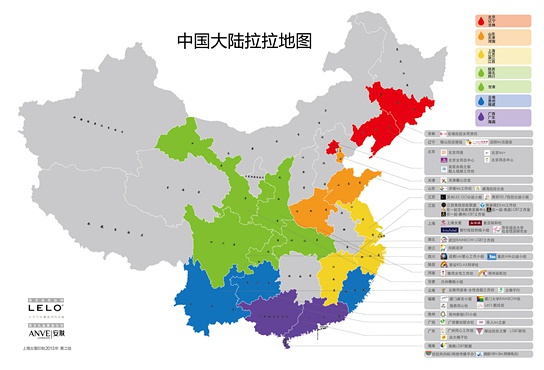
“Between 2012 and 2013, the Shanghai NVAI launched the ‘China Lesbians’ Activism Map‘. Within one year, the number of lesbian organisations in Mainland China had doubled, from twenty to forty, most of them independent NOGs. They were low-budget, with no government support and run by volunteers only, but those hard conditions never stopped the radical development of Chinese lesbian societies.
The Chinese LGBT community could have never imagined such growth and strength 20 years ago, especially when lesbians had a lower social visibility than gay men. Up until the 1990s, even 20 years after the Reform and Openness to the outside world, homosexuality was still taboo, and few people knew about the gay rights movement, which focused on resistance and change in both human rights and cultural fields.”
Elisabeth Engebretsen: Senior Lecturer in Gender Studies Discusses ‘Queer Women in Urban China’ – Margaux Schreus, The Beijinger, Sep 7
“Elisabeth Engebretsen’s new book, Queer Women in Urban China, is based on her research in China’s lesbian, or lala, community. The term lala, she writes, is used to “denote women-loving women and their communities and allies,” a word that came from Taiwan and Hong Kong in the late 1990s and is now commonly used in China. We talked to her at The Bookworm about her fieldwork, which she started just over a decade ago, and her thoughts about the future for Beijing’s lalas.”
History
PRC History Review, Volume 1, Number 2, August 2015
PRC History Roundtable on Elizabeth J. Perry’s book Anyuan: Mining China’s Revolutionary Tradition (University of California Press, 2012)
Chinese Unleash Rare Criticism of Chairman Mao on 39th Anniversary of His Death – Charles Liu, Sep 10
“Almost half a century after his death, Chinese still find it hard to criticize the controversial figure seen on all of their paper money. Arguments about the founding father of modern China may use the “ratio” argument in which any criticism against Mao is acceptable so long as he is given a favorable ratio that describes his fault, as in “70 percent right, 30 percent wrong”.
However, some Chinese netizens are marking the death of Mao 39 years later by describing it as the breath of fresh air China needed to get back on its feet. Law professor He Weifang made the following post on Weibo, attracting 7,700 likes and 3,400 forwards within just three hours…”
Missile March: China Parade Projects Patriotism at Home, Aims for Awe Abroad – WSJ, Sep 3
“The greatest military parade in Chinese history sent strong messages to multiple audiences Thursday. Chinese viewers were informed that under the Chinese Communist Party’s irreplaceable leadership, their nation repelled Japanese invasion, has reunified—largely, and is now rightfully reclaiming “great power” status. But amid political pomp and circumstance and patriotic pride as citizens rallied round the red flag was a core external military function: deterring potential foreign adversaries who might otherwise interfere with Beijing’s completion of the latter two missions.”
China building third airstrip on disputed South China Sea islets – Reuters, Sept 14
“China appears to be building a third airstrip in contested territory in the South China Sea, a U.S. expert said on Monday, citing satellite photographs taken last week.”
And…
Saving Tiger Leaping Gorge: A Reflection – Internationalrivers.org, Aug 26
“In 2006, farmers from a small village by China’s Jinsha River took seven hydropower surveyors hostage in a brazen attempt to stop the Tiger Leaping Gorge Dam. The dam would have flooded them out of their homes and ancestral lands, and massive opposition had arisen to it. And the crazy thing is, it worked.
Four years later, in 2010, I came to this village with my father to help with the production of a documentary, Waking the Green Tiger, which tells just how activists, journalists and local farmers worked together to stop this dam. My father, who was involved in the movement, was to be interviewed, and I was translating for the filmmaker, Gary Marcuse.
‘I Try to Talk Less’: A Conversation with Ai Weiwei and Liao Yiwu – Ian Johnson, The New York Review of Books, Sep 12
“Shortly after Ai’s arrival in Berlin, I accompanied the exiled Chinese writer Liao Yiwu to meet him.”
Understanding China’s Eurasian Pivot – Michael Clarke, The Diplomat, Sep 10
“First, the OBOR can in part be seen as China’s response to the “pivot” or “rebalance” to Asia under U.S. President Barack Obama and to Russia’s relative decline in Central Asia. Second, the OBOR (and the SREB component especially) is as much about Beijing’s domestic concerns as it is about its grand strategy priorities. Of major concern here is China’s hold on its major and often restive Eurasian frontier regions, such as Xinjiang and Tibet. While the relative decline of U.S. and Russian influence in Central Asia has provided Beijing with strategic opportunities to expand its reach, the intensification of Uyghur and Tibetan opposition to ongoing Chinese rule since 2008 has underlined for Beijing the need to accelerate the economic development/modernization of these regions as the primary means of achieving their integration into the modern Chinese state. Geopolitics and domestic state-building imperatives are thus interwoven in Beijing’s Eurasian pivot.”
Fake Peer Review Scandal Shines Spotlight on China – WSJ, Aug 25
“A prominent scientific publisher’s announcement last week that it was retracting 64 articles for false peer reviews made global headlines – yet it is the authors’ identity that is causing a stir in China.”
What it takes to launch a fake Apple store in Shenzhen – Ejinsight, Sep 9
“Forget counterfeit iPhones, it’s now entire fake Apple stores that the tech giant — which is expected to unveil some new products at an event in the US on Wednesday — has to contend with in China. In Shenzhen, an Apple Daily reporter found nearly twenty “Apple stores”, that claimed to be authorized resellers, within a 500-meter section of Huaqiangbei Road, an area well known for its electronics shops.”
China’s Nouveau Rich Have Landed on America’s Campuses – Foreign Policy, Sep 1
“Thanks to the immense purchasing power of the growing Chinese middle class, the image of the humble and diligent Chinese student of the 1980s has been replaced by that of the entitled fu’erdai, or the second-generation scion in a wealthy family, who studies abroad in order to return home to run the family business. The fu’erdai pay full tuition, often study finance, business management, or economics, and spend their time clustered together.”
Australian photographer Dan Tacon documents decadent Chinese nightlife – ABC, Aug 18
“Walkley Award-winning photographer Dave Tacon moved to Shanghai because the city ‘felt like the centre of the world’. He’s been documenting the city’s nightclub scene ever since, bearing witness to the fascinating decadence of a new class of young Chinese.”
China plans to land lunar probe on far side of moon – The Guardian, Sep 9
“China’s increasingly ambitious space programme plans to attempt the first-ever landing of a lunar probe on the moon’s far side, a leading engineer said.The Chang’e 4 mission is planned for sometime before 2020, Zou Yongliao, from the Chinese Academy of Sciences’ moon exploration department, told state broadcaster CCTV in an interview broadcast on Wednesday.”

